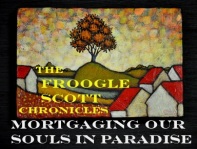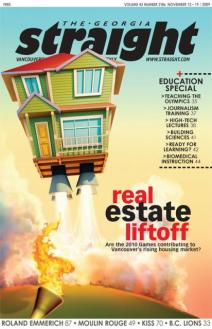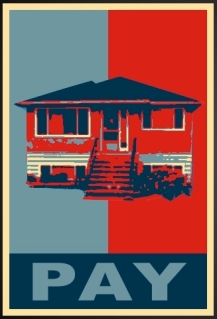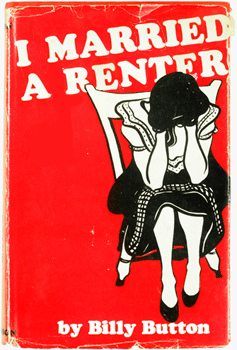5575 Elm Street, Westside Vancouver
5,101 sqft SFH, built 2006, 50×162 lot
Listed 9 July 2012 $4,880,000
Price reduction 27 July 2012 $4,530,000
Price reduction 19 Dec 2012 $3,990,000
Blurb extract: “Priced to sell.”
Only in Vancouver would a house like this be called ‘priced to sell’ at $4M.
Even at about 20% off original ask it’s sorely overpriced; houses like this will likely sell for well below $2 Million in the trough, and still be pricey in global terms.
– vreaa
—
UPDATE (with info from Canadian Watchdog and by Whisperer):
5575 Elm Street, Vancouver
2003 May: Sold $680K
2006: Rebuilt
2007: Sold $2,980,000
2010 May: Sold $3,079,000
2012 assessed value $3,545,000
2012 July: Listed $4,880,000
2012 July: Price reduction $4,530,000
2012 Dec: Price reduction $3,990,000


































2 million seems like a realistic price after the crash. I find it hilarious when people on this board think that a house like this is going to cost 700k post crash. Vancouver will never be “cheap” people, just less unaffordable then it is now…
Agreed, it’ll likely revert back to the historical %30-%50 more than Canadian median price… which still is significantly lower than current prices.
mh -> Agree it is important to not expect Vancouver to ever be ‘cheap’.
A problem in the latter stages of the bubble has been, however, that people have used the argument “Don’t expect Vancouver to ever be cheap” to justify almost any price for housing.
I’d agree with UBCg re the ‘canadian house price’ + ‘vancouver premium’ way of thinking; a premium for mild weather and beauty.
VREAA
“mild weather and beauty???
Have you looked out the window lately?
I would not call it a premium, rather a discount.
RETsunami -> Have you spent any time anywhere else in Canada at this time of the year?
VREAA
I’m fairly well travelled.
So let’s just keep it like “mild weather and beauty” is in the eye of the beholder.
Taking straight out of the brochure of your local Re agent.
Best place on earth etc.
Canadians used to be more cosmopolitan, travelled more.
Now it’s just Vancouver vs Calgary or TO.
Tsunami -> many others here are also well traveled, and we’ve had the Vancouver-vs-other-cities-in-the-world discussion many, many times before (summary: Vancouver comes off very modestly, one of many second or third tier cities in the world; see the ‘avoiding Vancouver ‘ sidebar for just a few of the many discussions relating to this).
BUT re-read the discussion above… We are here only talking about Vancouver versus other Canadian cities. And, yes, in that respect, it does garner a ‘mild weather and beauty’ premium.
Yeah…we are hitting night time lows of minus 30 in Saskatoon, Tsunami. Everything being kept in perspective Vancouver seems downright balmy by comparison……..but its a “dry” cold out here.
Farmer, you ever coached a soccer team in Vancouver?
I have for 6 years.
The worst is not the cold, but the wet plus 2 to 4 degrees that just
goes right through your bones, no matter what protective clothes you’re wearing.
It has always amazed me that Chinese with money would choose Vancouver over other cities worldwide, I would have though buying citizenship was no longer and issue, so if you;ve got the cash and are looking for a place to buy an asset and educate your kids, why not shoose San Diego or Adelaide, or Plymouth?
Angletere,
All the countries you mentioned have closed the door to passport Immigrants.
Only stupid Canada is still wide open.
Who said that this house will cost $700k post crash?
I don’t think it is possible to be so sure as to how far prices will fall. The housing bubble in the Vancouver area is, by most measures, amongst the most extreme. And it is combined with unprecedented levels of debt. The tendency will always be that the more severe the bubble, the more severe the correction. Usually, under these circumstances, prices fall far more than most expectations. Factors that might ameliorate the fall are looking grim. The rate of population growth for BC is already falling and one component, interprovincial migration, is already negative. There are new restrictions on immigrant investors. And foreign real estate investors will note that while prices are collapsing here, they are beginning to rebound south of the border. It doesn’t appear that the federal government is planning on again easing access to debt for housing. How much economic activity in our region is related to home construction and sales? And how much general economic activity came from home equity loans based on appreciating home values? If these are relatively high there will be a deeper overall economic decline as levels of construction and prices fall. I will agree there is a premium that can be extracted for the Vancouver market. But this is relative to the cost of housing elsewhere in the country which will also be falling significantly. Furthermore, this brand rent, so to speak, can be easily undermined if the crisis here is particularly deep. There is no joy to living in Vancouver if there are no jobs
>There is no joy to living in Vancouver if there are no jobs
I know a number of 20-somethings who can’t give up “the best place on earth” despite being well trained with skills that are marketable even in these grim economic times. They’re pretty much willing to go jobless or be under-employed because they’re convinced that no other place can measure up to the Lower Mainland and are “willing to make that sacrifice for lifestyle.”
I suspect they’ve been indulging in a little too much high-proof mortgage subsidizing cannabis.
I’ve said it before… and in view of your post here GhettoDweller, and on a previous thread [“something’s very, very fishy”].. I’ll say it again… “YVR can be a fun town when the sun’s a shinin’ and you’ve got a couple of toonies in your pocket – but that’s as far as it goes.”…
Apropos this theme [albeit, I would rather not be thinking about the ‘GlobalMacro’ on a Saturday afternoon]… the following may prove instructive… Such as it is… here’s your SaturdayZen, DearReaders…
“There are so many pharmacies here… There’s one on every corner. It’s like Spain with bars!” – SpanishExpat, Engineer Rafael Montoya, 30 [remarking on the preponderance of the elderly in his new neighbourhood]
“Germans like to see others work. And when they work, they are loved.” – Hartmut Reichl, Baden-Wuerttemberg Finance Ministry
[UK Independent] – Tensions rise as professionals from EU’s ailing nations flock to Germany
…”More than three years into an economic crisis that has threatened to tear Europe apart, one country is still on a hiring spree, and it is pulling away the best and the brightest workers from its neighbors along the way.
Thousands of professionals from recession-struck Spain and Greece have been streaming into Germany, where joblessness remains low, and some say they may never leave. The migration is the biggest test yet for the European Union’s promise to wipe away economic barriers between nations, as the best-trained workers from weak countries leave home in the greatest numbers since the bloc was forged.
Now, the new right to work anywhere is bumping against old prejudices about crossing national lines. There are new strains in the partnership, with some Germans fretting about the influx and Spanish and Greek policymakers worried that their best hope for recovery is vanishing one plane ticket at a time.”…
http://tinyurl.com/cehahwt
[NoteToEd: I seem to recall that ‘Dem Deutchen Volke’ once sponsored a popular ‘holiday’ camp whose motto had something to do with work… I know, that was churlish of me – but I couldn’t restrain myself.]
You are correct Lifetime renter. It is difficult to know how far Vancouver prices will fall. I am in the 40 to 45% camp although I have to admit the case for declines below 50% is compelling based on our knowledge of bubble corrections. They do tend to overshoot which is a legitimate worry.
The potential for a forecosure disaster exists if interest rates begin to climb before resident owners there have delevered more of the excess debt. Lately there has been quite a bit of discussion on the web about the potential for the bond market to roll over. Trouble is latent and it cannot be underestimated.
If it does go over some mortgage holders could find themselves in very deep waters quickly. It is fairly urgent in my opinion that Vancouver cool off. A larger disaster looms due to the inevitability that rates will rise eventually. But when? 2013? 2014? 2015?
Large numbers of foreclosures could wreak havoc on the economy and on peoples lives and bring on steep rises in the unemployment rate. Unfortunately for the typical mortgage holder in Vancouver they have little in the way of disposable income to service their existing credit card debts never mind paying down mortgages more quickly. As such they are between a rock and a hard place and debts will only be diminished over the time allotted for amortizations. I do not think that is fast enough to create a safety margin before the inevitable rate rises come so we had best brace for stormy waters ahead.
Is the whole “Vancouver will never be cheap” argument backed up by rental data? Do rents actually reflect a BPOE premium or are in they line with the rest of Canada when compared to incomes?
Rents in Sydney are obviously a lot higher than they are in the rest of Australia but when you look at median rent/median income the ratio is basically the same (24.3 per cent versus 23.1 per cent).
Despite this we constantly hear that prices can’t crash in Sydney because everyone wants to live here and that wages are high. Either a median household income of $75K supporting a median house price of $680K is normal (just 9X!) or we’re going down with the rest of the country.
Just as prices have overshot on the upside, so they may on the downside.
Mh,
Vancouver, like other coastal cities, is living on borrowed time.
Sea levels are rising. There has been a storm surge this week in Ditchmond caused by a fairly minor wind storm.
Not to mention the possibility of a major earthquake.
Sure, borrowed time, as in sea levels may be a problem in a century or two. Earthquake could happen anytime, of course.
I can’t resist. I was channel flipping last night and this was where i stopped for an hour….
reality check for vancouver ….
http://www.hgtv.com/real-estate/more-extraordinary-spaces-from-million-dollar-rooms/pictures/index.html
Mortgage advisors faceboook update.
“wow, a week before the Christmas holidays and I am more busier with mortgage deals than I have been since September to December.”
Also noticed in his older status update
“This article confirms that Vancity is not affected by new tighter mortgage rules. As a Vancity Mortgage Development Manager, ask me how this can help you qualify for the mortgage you need”
http://business.financialpost.com/2012/07/12/credit-unions-escape-new-mortage-rules/
So is this true? Place like Vancity and other credit unions are exempt from the new OFSI rules?
Credit unions are provincially regulated, not by OSFI.
Thanks Ralph, what are the rules in BC?
Ahhh… That’s why there were so many people opening accounts to get Mortgages at my credit union the last few weeks. They were off the wall stupid busy processing paper for young couples… could not understand with what i thought was rule tightening…
Oh well… guess the Credit Union Accounts are the last bank cash cow to loot now..
Silver
http://cudicbc.ca/ looks to point to BC’s regulator.
Silver: Too bad about the CUs apparently not understanding adverse selection. When you’re the only game left in town for risky loans, you’ll be fielding applications from a disproportionate number of deadbeats. So unless your underwriting department is REALLY efficient, and good at spotting frauds, more costs and worse deals.
Google search shows this home was sold on May 31, 2010 for $3,079,000 Link Original asking price at $4,880,000 was a 58% increase in 2 1/2 years.
Thanks for info. Interesting. Another $800K-$900K down and this guy is underwater.
Only in Vancouver would an ugly box devoid of any architectural finesse sell for $4mill. The house is on a postage stamp size lot. McMansion footprint probably takes up 90% of lot.
For a lot less than that I can buy a home on an acre in a prestigious world class neighborhood like Malibu, Rancho Santa Fe, Beverly Hills.
And then my little princeling could have TWO Murcialagos! A neon green one to match the neon orange one.
I am beginning to think this bear logic is not so disharmonious after all!
yes-yes-yes! … we shall not cease until there be red bull in every house … http://tinyurl.com/34kz46 … happy holidays! :):):)
At least Vancouver has some kind of house size vs lot size bylaw. Check out what’s going up in Richmond where you can by a McMansion with barely enough yard space to swing your shih tzu.
What did this house sell for in 2006? (you may be shocked at how low that was using eyes accustomed to today’s insanity).
This is an $800,000 home. And the painful adjustments that lie ahead are going to shock even those who call themselves bears if you measure by 2011/2012 prices.
it sold for $3,079,000 in 2007. So not that much lower really…
http://www.beverlyrichardson.ca/Properties.php/Details/6
We have been in a housing bubble since long before 2007.
Prices were extremely inflated in 2007. Actually, the mild correction of 2008 briefly took prices to 2006 levels and it was still way higher than just a few years before that.
This monster bubble is a decade old.
bubbly, you’ve summed it up quite nicely. The growth has been metastatic for so long that people have a hard time remembering when things were “normal.”
“This monster bubble is a decade old.”
You sure only a decade? Could be more like 3 decades old.
The fiat money bubble is 4 decades old, the debt bubble is about 2.5 decades old and this particular housing bubble is about a decade old.
We were in a bubble by as early as 2003; really took off in 2006; hit the emergency afterburners, as we all know, in 2009.
—
And the whole argument about possibly being in long term overinflated housing prices before then is a valid one. Particularly if you consider Shillers long term work showing housing keeping track with wage inflation.
—
So, yeah, we’re predicting 50%-66% off peak prices, but would say 80% off is not impossible. It’d look like a depression, of course. What are the chances of that happening? Low, but not as low as prices bottoming at less than 30%-off!!
Who said, “Light the cans! VerticalSonicTime, Baby.”…
From the asphalt…
‘Room With A View’
[NoteToEd: “Lighting the cans” is impressive but promotes fuel starvation and reduces ‘operational duration’.]
There is some probability of a disaster of that magnitude. I try not to give it too much thought most days but when you consider the current state of the global economy and all the intervention (that we are going to be paying for in the end) a few beads of sweat show up on your brow. The race to davalue currencies is heating up in a serious way too. Japan in particular is what we need to be watching. The potential for inflation to ramp up very quickly will come as a surprise to almost everyone who is already strapped deeply in debt. It could get ugly fast.
Wait. What? You mean the average family home should only be worth 3-4 times average household income? Heresy!
Nightmare on Elm Street.
Some quick calculations from a mortgage calculator.
25 year amort
3% interest
20% downpayment (796k)
Monthly payments of $15,068.
This is just for mortgage alone. How many german investors paying cash do we need to maintain the high end market?
Yeah, but now that CMHC won’t insure above $1mm, this is a Canadian ‘jumbo mortgage.’ Some banks have gotten the hint and won’t lend more than 50% of the value above $1mm or $1.25mm. Many others will likely follow soon, or become much pickier about the properties and borrowers they underwrite, and charge higher rates for these types of loan.
By the way, it was listed as “Priced to sell” at the end of the description at $4.88M when it first listed in July. I’m surprised they didn’t update it to “Way below market value” with the recent drop
Thanks, hadn’t noted that.
Anybody who doesn’t yet know ‘an observer’s site, vancouverpricedrop, check it out.
@ UBCghettodweller
Your friends that are living in Vancouver with no jobs or decent jobs should just go and travel, you can live in S.E Asia like a king or queen for 1
$1,000 a month…
Yes Vancouver is a great place in comparison with many other areas of Canada in the winter.. But the thing is that young people can see the world now.. They can find tropical islands and live there and wait for the market to crash to come back and settle.. If they are smart!
Nem
“Dem Deutchen Volke” is rubbish.
Google has a German/English translation service.
Use it, otherwise you look foolish!
It was a visual metaphor/historical allusion, RET… vs. a ‘transliteration’… If you look carefully at the stonework above the corinthinian columns in the following illustration you’ll see what I was getting at…
http://tinyurl.com/c4okcrx
[NoteToEd: when last I saw it… it was still more or less in ruins… enshrouded… and encircled… by the echos… of distant ‘enthusiasms’/crimes.]
Oops… cut n’ paste failure… here’s the correct hyperlink…
http://tinyurl.com/c9vwfr5
Not that it matters but investor class immigration was down 50% in Q3.
Also interesting, nonpermanent residentscomprise about 20% of population growth these days. As of Q3 BC’s population is 3% NPR, up from 1.2% a decade ago.
Also interesting, the last decade saw total international migration higher than ever before in absolute figures. This was quite different than the 90s when a large % of in migration was from Ontario and Alberta, not international.
So basically they expedite investor class via more NPRs, or this was the good ol’ switcheroo maneuver so Canadians don’t blame more wealthy Asians for driving up home prices. Kenny is smarter then I thought.
And you have evidence of this?
A fat wallet and a good lawyer can get an investor in by any means. Anytime an agency's stats are skewed against one of its objectives, it is more likely to be due to some sort of policy change or reshuffling of numbers. The Government is not going to reject wealthy investors when capital inflows are needed to pay down deficits.
If that's a conspiracy theory, then other levels of government must be conspiracy theorists too: Manitoba immigrant numbers skewed: Province
I matters hugely that the Investor class is down 50%.
They were a large part in driving the RE particularly in Ditchmond.
I know this from experience.
Now, many of them have their passports and are starting to liquidate.
Keep an eye on Barrington Walk, an upscale Townhome Development in Richmond at Granville and Heather.
Most of the owners are Investors from offshore, mainly from Shanghai.
Out of 107 unit, there are now 15 units for sale
Disloyal comrade, spreading suspicion among this treaty port!
You are a setiditionary splittist!
Your thoughts will be harmonized if you carry on like this – do not call attention to my fellows from the glorious CCP – we earned these embezzled funds and kickbacks!
We are the vanguard of the party – a true meritocracy! Unlike you, plebeian colonial!
Ps. You’re a racist
Watchdog,
Completely agree.
A fat wallet and a good immigration lawyer is all it takes to get first in line for a Canadian Passport.
Here is the latest price changes for this shack:
====================================
2012-07-14 $4,880,000.00
2012-07-28 $4,530,000.00
2012-12-20 $3,990,000.00
Good start! Empty millions are falling down
Emili says this is not an auspicious number.
The Mop did a huge article on Emili yesterday. In the paper paper, it was a four page spread. “Starting with this story, The Globe and Mail examines the foundation of Canada’s historic real-estate boom in a series.”
My key takeaways from the article:
– Even after the disastrous American experience, Emili allows users to pull the handle on a deal multiple times until it comes up cherries. Lenders can thus ask, indirectly, what the maximum loan Emili would deem prudent for a given property/borrower, or even how much income a borrower would have to claim to get a loan approval. This is a huge flaw given that many people who use Emili are paid commissions and/or bonuses based on deals done.
– Emili is a holistic system that looks at the borrower and the collateral. Written by an organization which considers part of its mandate to “ensuring housing markets function efficiently to help Canadians access a range of housing options.” I imagine they were tempted to let valuations go a bit for very strong borrowers (collateral might be a bit iffy, but borrower is going to repay loan anyway) and conversely to let borrower standards slip a bit for low LTV loans (supercollateralized and the borrower has so much skin in the game that he’ll find a way to pay). Both of these scenarios slip away from what banks used to consider good underwriting and toward what the US calls “subprime.” They also drive up home prices.
– It would appear that at least some of the banks have come to rely on Emili completely even for uninsured conventional mortgages of less than 80% LTV. “I can get rid of my entire underwriting department and just pay CMHC $50/deal? Deal!”
At the Mop: http://www.theglobeandmail.com/report-on-business/economy/housing/shaky-foundations-how-ottawas-computers-get-canadian-home-prices-wrong/article6673774/?page=all
A quick retort from the vested interests: http://www.canadianmortgagetrends.com/canadian_mortgage_trends/2012/12/emili-criticisms-resurface.html
I wouldn’t completely discount Rob McLister as ‘vested interests’, he does raise some good points about the G&M article, namely that there aren’t much public data on how bad emili has mispriced houses.
Further, even if appraisals were completely manual and heavily regulated, residential appraisals rarely use rental equivalence because, especially in markets like these, it’s almost meaningless. Not so for commercial appraisals where cap rates are often used. For residential, if the guidelines given to appraisers doesn’t include rental equivalence, they have to use previous sales info as a baseline.
Well, I submit that there’s two fundamental problems with Emili: It was written by people who want to lend/guarantee other peoples’ money (see CMHC’s board of directors), and it’s used by people who want to lend other peoples’ money (see bank mortgage officers).
McLister cutely slides in a bell curve and suggests tiny tail risk on one end, which ignores that everyone who touches Emili, or whose numbers eventually go into Emili is looking to inflate the appraised value of the property to get the deal done. And with the positive feedback entailed in the model (last years slightly overappraised sale down the block becomes a comp for this year’s slightly overappraised pending sale…) the effects are doubly pernicious.
Suggested reading:
http://www.calculatedriskblog.com/2008/03/zippy-cheats-tricks.html
http://www.calculatedriskblog.com/2008/03/more-on-chase-and-zippy-tricks.html
And that was for a system written in-house by an organization that was using it, even if not exclusively, to make decisions on putting its own money at risk.
FD: I used to post on McLister’s blog, but he s**tcanned my posts one too many times so I’ve stopped. I was sowing disharmony! But I think what really got him was a sarcastic comment I made about renters. I don’t think he twigged to the sarcasm as he outed himself and much of his family as renters and took some serious umbrage.